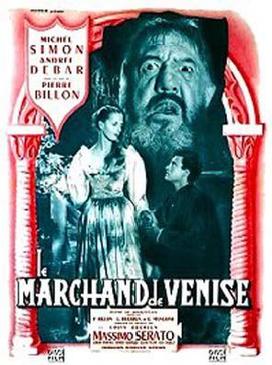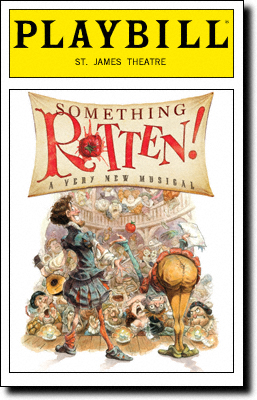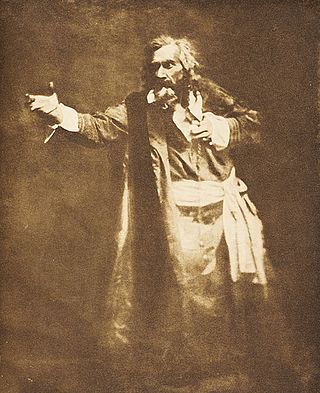
The Merchant of Venice is a play by William Shakespeare, believed to have been written between 1596 and 1598. A merchant in Venice named Antonio defaults on a large loan taken out on behalf of his dear friend, Bassanio, and provided by a Jewish moneylender, Shylock, with seemingly inevitable fatal consequences.
John Anthony Bell FRSN is an Australian actor, theatre director and theatre manager. He has been a major influence on the development of Australian theatre in the late 20th and early 21st centuries.

The Merchant of Venice is a 2004 romantic drama film based on Shakespeare's play of the same name. It is the first full-length sound film in English of Shakespeare's play—other versions are videotaped productions which were made for television, including John Sichel's 1973 version and Jack Gold's 1980 BBC production.
Gareth S. Armstrong is a British actor, director, teacher and writer.
Ed Dixon is an American character actor, playwright and composer.
Scott Wentworth is an American actor and director who immigrated to Canada in 1986.
First Folio Theatre was a not-for-profit theater company affiliated with the Actors' Equity Association. Founded in 1996, First Folio, originally named First Folio Shakespeare Festival, was located on the grounds of the Mayslake Peabody Estate in Oak Brook, Illinois, United States. First Folio utilized the "Folio Method" as developed by Patrick Tucker, who first introduced his approach to American actors, directors and teachers in a series of workshops sponsored by the Riverside Shakespeare Company of New York City at The Shakespeare Center beginning in 1982, which led to an awakened interest in the First Folio.
Yasser is a play by Moroccan-born Dutch novelist, playwright and journalist Abdelkader Benali. It was written in 2001, and describes the challenges and adversities faced by a Palestinian actor in playing the role of Shylock in Shakespeare's The Merchant of Venice.

The Merchant of Venice is a 1969 drama short film directed by Orson Welles based on William Shakespeare's play of the same name. While actually completed, it is frequently cited as an unfinished film, though better described as a partially lost film due to the loss of film elements.
Shylock is a monologue in one 80-minute act written by Canadian playwright Mark Leiren-Young. It premiered at Bard on the Beach on August 5, 1996, where it was directed by John Juliani and starred popular Canadian radio host, David Berner. Its American debut was in 1998 at Philadelphia’s Walnut Street Theatre where it was directed by Deborah Block, starred William Leach and was “Barrymore Recommended.” It has since been produced at theatres, Shakespeare Festivals and Fringes throughout Canada and the US, was translated for a production in Denmark and has been staged twice by the original actor, Berner, in Venice. A Czech translation by Jitka Sloupova ran in Prague from 2016-2019 at Divadlo Na Jezerce and starred Milan Kňažko.

The Merchant of Venice is a 1953 French-Italian drama film directed by Pierre Billon and starring Michel Simon, Andrée Debar and Massimo Serato. It is loosely based on William Shakespeare's Elizabethan play of the same name.

Something Rotten! is a musical comedy with a book by John O'Farrell and Karey Kirkpatrick and music and lyrics by Karey and Wayne Kirkpatrick. Set in 1595, the story follows the Bottom brothers, Nick and Nigel, who struggle to find success in the theatrical world as they compete with the wild popularity of their contemporary William Shakespeare.

Shylock is a fictional character in William Shakespeare's play The Merchant of Venice. A Venetian Jewish moneylender, Shylock is the play's principal villain. His defeat and conversion to Christianity form the climax of the story.

The Merchant of Venice is an opera by André Tchaikowsky (1935–1982) to a libretto, based on the Shakespeare play, by John O'Brien. Written between 1968 and 1982, it was first performed in 2013 at the Bregenz Festival. The British premiere was presented by the Welsh National Opera in September 2016.

Shylock is a 1940 Indian Tamil-language film directed by Kinema Ramu and Serukalathur Sama and produced by Bharat Pictures. It is based on William Shakespeare's play The Merchant of Venice, and features Sama as the title character. The film was released on 23 November 1940 and failed commercially. No print of it is known to survive, making it a lost film.
Shylock is the principal antagonist of William Shakespeare's play The Merchant of Venice.

The Merchant of Venice is a 1961 Australian television adaptation of the play by William Shakespeare that aired on 13 September 1961 in Sydney, and on 25 October 1961 in Melbourne.

The Merchant is a 1976 play in two acts by the English dramatist Arnold Wesker. It is based on William Shakespeare's The Merchant of Venice, and focuses on the Jewish Shylock character, that play's principal antagonist.
The Venetian Looking-Glass was a 1905 French short silent film by Georges Méliès.

The Shylock Suite, Op. 57 is a six-movement work by Gabriel Fauré, first performed in 1890. In addition to four purely orchestral movements it includes two serenades for solo tenor with orchestral accompaniment. The composer constructed the suite from incidental music he had written the previous year for Edmond Haraucourt's play Shylock, an adaptation of Shakespeare's The Merchant of Venice, presented at the Théâtre de l'Odéon in Paris. The theatre music had been written for a small orchestra, and Fauré greatly expanded the orchestration for the concert suite.










